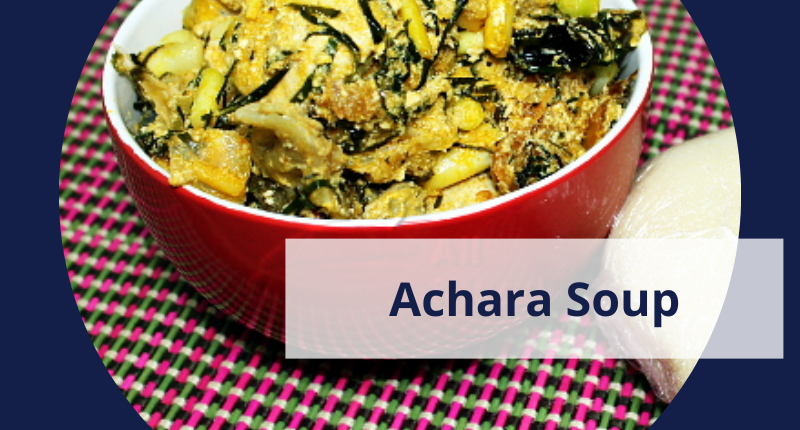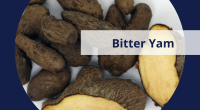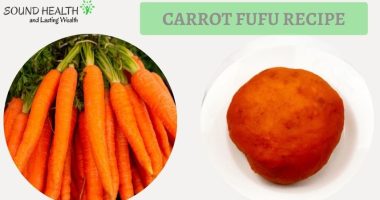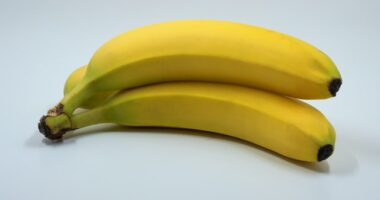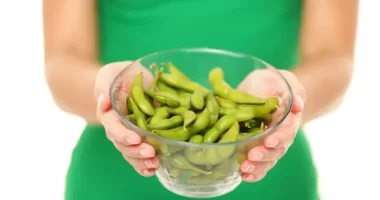Seven healthy Igbo foods to eat even if you are not from the tribe – Igbo cuisine is a rich and diverse part of Nigerian culture, with a variety of traditional dishes that are both delicious and nutritious. While these dishes are often enjoyed by members of the Igbo tribe, they can also be enjoyed by people from all backgrounds as they offer a range of flavors and textures that are sure to satisfy any palate. Here are seven nutritiously rich and healthy Igbo foods.
One: Nni Oka (Oka porridge)
Nni Oka, also known as Oka porridge, is a traditional Igbo dish made from cornmeal. It is a popular breakfast food in Eastern Nigeria, and is often served with soup or stew. Nni Oka is a good source of carbohydrates and fiber, and is also a relatively inexpensive meal to make.
To make Nni Oka, you will need the following ingredients:
- 1 cup of cornmeal
- 2 cups of water
- 1/2 teaspoon of salt
- 1/4 teaspoon of sugar (optional)
Instructions:
- In a medium saucepan, bring the water to a boil.
- Once the water is boiling, slowly whisk in the cornmeal.
- Reduce the heat to low and simmer for 10-15 minutes, stirring constantly, until the porridge is thick and smooth.
- Season with salt and sugar to taste.
- Serve hot with soup or stew.
Here are some tips for making Nni Oka:
Use a whisk to prevent the cornmeal from clumping.
If the porridge becomes too thick, add a little more water.
If the porridge becomes too thin, cook it for a few minutes longer.
Two: Abacha (African salad)
Abacha, also known as African salad, is a popular Nigerian dish that originated from the Igbo tribe in the southeastern part of Nigeria.
It is made from dried, shredded cassava, and is often served with ugba (ukpaka), a type of oil bean, palm oil, onions, and other seasonings.
Abacha is a nutritious and protein-rich food that is easy to prepare and can be enjoyed as a snack or a meal.
To make abacha, the dried cassava is soaked in cold water until it softens, then washed and drained before being mixed with the other ingredients.
Abacha is a healthy alternative to other snacks and can be enjoyed by people from all backgrounds.
Ingredients:
- Abacha (dried, shredded cassava): Amount depends on how much you want to make. Typically, a 1kg bag feeds 4-6 people.
- Palm oil: 1/2 cup – 1 cup, depending on desired richness.
- Potash (kanwa): 1 tablespoon, dissolved in water. Use with caution! Potash is caustic and can irritate skin, so handle it carefully. Consider substitutes like baking soda if unsure.
- Ground crayfish: 1/4 cup
- Dry pepper: To taste, ground or whole
- Seasoning cubes: 2-3 (optional)
- Ehu seeds (calabash nutmeg): 1 teaspoon (optional)
- Ogiri: 1 tablespoon (optional)
- Onions: 1 large, chopped, and 1 medium, sliced (for garnish)
Garden eggs (optional): 2, diced, and leaves chopped (for garnish) - Utazi leaves (optional): Chopped, for garnish
- Salt: To taste
Instructions:
- Soak the abacha: Rinse the abacha in cold water for 10 minutes. Then, pour boiling water over it and drain immediately. Repeat this process once or twice, depending on the desired texture. You want it softened but not mushy.
- Prepare the sauce: Heat the palm oil in a pot over medium heat. Be careful, hot oil can splatter! Slowly add the dissolved potash (or substitute) and stir continuously until a yellowish paste forms. Caution again, fumes from potash can be irritating.
- Add flavorings: Add the ground crayfish, pepper, seasoning cubes (if using), ehu seeds (if using), and ogiri (if using). Stir well to combine and cook for a few minutes.
- Incorporate abacha: Add the abacha to the pot and mix well. Cook for a few more minutes, stirring occasionally, until heated through. Do not overcook!
- Season and garnish: Add salt to taste. Turn off the heat and stir in the chopped onions, garden egg leaves (if using), and utazi leaves (if using). Garnish with sliced onions and enjoy!
Tips:
- Use gloves when handling potash.
- If you don’t have ehu seeds or ogiri, you can omit them.
- Adjust the amount of pepper to your spice preference.
- Serve abacha warm or at room temperature.
- Enjoy it with fried meat, fish, or simply on its own.
Three: Oha Soup
This vibrant green soup features tender oha leaves, known for their richness in vitamins and minerals like calcium, iron, and vitamin C. Often paired with protein-packed meats or fish and enjoyed with pounded yam or fufu, it’s a complete and satisfying meal. Here’s a guide to making this delicious dish:
Ingredients:
- Oha leaves: 1 large bunch, washed and roughly chopped
- Meat of choice: 500g beef, chicken, goat, or fish, cut into desired pieces
- Stockfish: 100g, soaked and deboned (optional)
- Cocoyam: 2 medium, peeled and boiled
- Palm oil: 1/4 cup
- Onions: 2 medium, chopped
- Scotch bonnet pepper: 1, chopped (adjust to your spice preference)
- Bell peppers: 1 red and 1 green, chopped (optional)
- Ground crayfish: 1/4 cup
- Ogiri: 1 tablespoon
- Uziza leaves: 1 handful, chopped
- Seasoning cubes: 2-3 (to taste)
- Salt: To taste
- Water: As needed
Instructions:
- Cook the meat: In a large pot, heat palm oil over medium heat. Add the chopped onions and scotch bonnet pepper, and cook until softened and fragrant.
- Add meat and stockfish (optional): Add your chosen meat and cook until browned. If using stockfish, add it at this stage and simmer for a few minutes to release its flavor.
- Incorporate cocoyam: Mash the boiled cocoyam into a smooth paste. Add it to the pot and stir to combine.
- Season and simmer: Add seasoning cubes, salt, and water to cover the ingredients. Bring to a boil, then reduce heat and simmer for 15-20 minutes, or until the meat is tender.
- Add vegetables: Add the chopped bell peppers (if using) and simmer for 5 minutes more.
- Incorporate oha leaves: Stir in the chopped oha leaves and cook for just 1-2 minutes, until wilted but still bright green.
- Finish with aromatics: Remove from heat and stir in the ground crayfish, ogiri (if using), and uziza leaves.
Four: Ugba
Ugba, also known as Ukpaka, is a traditional Nigerian delicacy made from the African oil bean seed. This fermented oil bean seed dish is a powerhouse of protein and healthy fats. Packed with probiotics that aid digestion and gut health, ugba adds a unique savory depth to soups and stews. To prepare ugba, the African oil bean seed is cooked for up to 12 hours, then sliced, washed, and fermented for up to 5 days. The fermented ugba is then used in various recipes, adding a unique flavor to the dishes. While it may be more commonly found in Nigerian or African specialty stores.
Ingredients:
- 3 handfuls of ugba (ukpaka)
- 1/2 cup of red palm oil
- 1 habanero pepper (atarodo, ose oyibo)
- 1 teaspoon of powdered edible potash (alternative: baking soda)
- 1 big stock cube
- 1/2 teaspoon of ogiri Igbo
- 2 big pieces of ponmo (cow skin)
- 1 big cut stockfish
- 1 handful of crayfish or 2 tablespoons of ground crayfish
- 10 medium crayfish
- Salt (to taste)
- For serving: 1 red onion, 1 small bunch of garden egg leaves (akwúkwó añara), 1
- chunk of stockfish or dry fish (optional)
Steps:
- Soak the ugba in cold water until it softens, then wash and drain it.
- In a separate bowl, mix the powdered edible potash with a little water and set it aside.
- In a pot, heat the red palm oil until it starts to smoke, then remove it from the heat and allow it to cool down a bit.
- Add the potash mixture to the oil and stir. This will make the oil curdle.
- Add the ugba, ponmo, stockfish, crayfish, ogiri Igbo, and salt to the pot and mix everything together.
- Allow it to sit for about 5 minutes to absorb the flavors.
- Serve the ugba with the sliced red onions, garden egg leaves, and additional stockfish or dry fish if desired.
Five: Ukwa (Breadfruit)
This starchy fruit is a good source of fiber, potassium, and vitamin C. It can be boiled, roasted, or fried, making it a versatile ingredient for various dishes. Enjoy it as a side dish or incorporate it into stews and soups. To make Ukwa (Breadfruit) porridge, you will need the following ingredients and steps:
Ingredients:
- 6 cups of Ukwa (Breadfruit)
- 1 teaspoon of Potash (akanwu)
- 4 Fresh peppers
- Ogiri (optional, a local ingredient)
- 1/2 seasoning cube
- Salt to taste
- 100 ml of palm oil
- 2 cups of soft corn
- 2 medium dry fish
- 2 small stock cubes
- 5-6 fresh bitter leaves
- Pepper & Salt (to taste)
Steps:
- Wash the Ukwa seeds thoroughly.
- Transfer the washed Ukwa into a cooking pot and start cooking with 5 cups of water.
- Add the potash once it boils.
- Cook until the Ukwa becomes soft.
- Add the palm oil, peppers, seasoning cube, and salt to the pot and allow it to cook for a few more minutes.
- Add the dry fish, ogiri, and fresh bitter leaves.
- Allow it to simmer for five minutes.
- Serve the Ukwa porridge with drinks such as juice. It can also be served with palm kernel or coconut. Freshly cooked Ukwa can also be eaten with palm kernel or coconut.
Six: Ofe Achara
Ofe Achara, also known as Achara Soup, is a traditional Igbo soup from Nigeria, particularly from Abia State. It is often prepared with molded egusi (Akpuruakpu Egusi) and achara (lemongrass or elephant grass). The following are the ingredients and steps to make Ofe Achara:
Ingredients:
- Achara (lemongrass or elephant grass)
- Akpuruakpu Egusi (molded egusi)
- Meat (e.g., cow meat)
- Stockfish
- Dry fish
- Red palm oil
- Crayfish
- Uziza leaves
- Uziza seeds
- Periwinkle
- Achi (optional thickener)
- Ground pepper
- Stock cubes
- Salt
Steps:
- Soak the stockfish and dry fish to soften.
- Cook the meat with stock cubes until tender.
- Add the stockfish, dry fish, and continue cooking.
- Prepare the molded egusi by grinding the egusi seeds, mixing with a little water, and forming into disc-shaped moulds.
- Add the molded egusi, achara, and other ingredients such as uziza leaves, periwinkle, and achi (if using).
- Allow the soup to simmer until well cooked and the flavors are infused.
- Serve the Ofe Achara with a side dish such as pounded yam or fufu.
These steps and ingredients are based on the traditional preparation of Ofe Achara, a delicious and nutritious Igbo soup from Nigeria.
Seven: Nkwobi
Nkwobi is a traditional Nigerian delicacy, particularly popular in the southeastern part of Nigeria. It is a spicy cow foot dish that is often enjoyed in exclusive restaurants or beer parlors. The dish is made with cow foot, palm oil, and a variety of spices, giving it a rich and flavorful taste. The following are the ingredients and steps to make Nkwobi:
Ingredients:
- 2 kg (4.4 lbs) cow foot (cut into sizeable pieces)
- 20 cl (200 ml) palm oil
- 1 tablespoon powdered edible potash (Akanwu/Kaun/Keun)
- 1 teaspoon ground Ehu seeds (Calabash Nutmeg)
- 2 tablespoons ground crayfish
- 2 big stock cubes
- 1 onion
- Ground Cameroon pepper
- Salt/bouillon cube to taste
- 1 teaspoon garlic powder
- 1 teaspoon ground ginger
- 1 teaspoon baking soda
- Uziza leaves (optional)
- Ugba (optional)
Steps:
- Wash and put the cow foot chunks in a pot.
- Add the stock cubes (crushed) and the chunks of onion.
- Add a small quantity of water and start cooking at medium heat till well cooked.
- Add just enough water to prevent burning.
- In a separate bowl, dissolve the powdered potash in a small quantity of water and
- sieve to get rid of any particles.
- Pour the palm oil into a clean dry bowl.
- Add the potash liquid, ground ehu, ground crayfish, ground pepper, and the other ingredients.
- Stir very well till the palm oil changes to a yellow paste.
- Add the cooked cow foot to the paste above, and stir very well till the cow foot is well coated with the palm oil paste.
- Cover the pot and leave to simmer and it’s ready to be served.
Nkwobi is typically served as a side dish or as a main course, and it is often enjoyed with a cold drink. The dish is known for its bold and spicy flavors, making it a unique and popular delicacy in Nigerian cuisine.
ALSO READ: Seven healthy Hausa foods to eat even if you are not from the tribe
